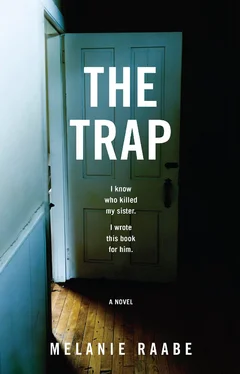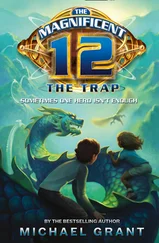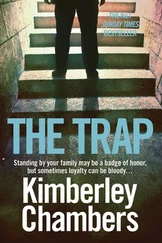“‘What if I go to your wife? Do you think she’d like to hear that you’re here with me while she’s sitting at home on her own, breast-feeding your ugly baby with her saggy tits?’
“I tell her to be quiet — that she knows nothing about my wife, about my marriage. But she isn’t quiet.
“‘I know all about your marriage, my love. I know that your dear father-in-law will kick your useless arse out of the door when he finds out that you’re cheating on his spoiled little girl. Do you really think you got that job because you’re so competent? Look at you! Standing there as if you were about to start blubbering, you ridiculous loser! I mean, really, you’re not my idea of leadership material.’
“And I tell her that she should shut up, but she carries on.
“‘Don’t think you can get rid of me. By the time I’m finished with you, you’ll have nothing left. No wife, no job, no child. And don’t think I’m not serious. Don’t go thinking that!’
“I’m stunned. Rigid with fury. Almost blind. And she laughs.
“‘The way you’re looking at me, Victor! Like a dog in disgrace! Maybe I should call you Vicky from now on. That’s a lovely name for a dog, isn’t it? Come on, Vicky. Heel! Good doggy.’
“She laughs her naughty laugh — her boyish laugh that I’d fallen so desperately in love with, but that now makes me feel sick. She laughs and laughs; she won’t stop. She carries on until…”
Lenzen breaks off. He’s silent for a moment, caught up in his memories. I hold my breath.
“ Family man stabs mistress ,” he says at length. “That’s the kind of headline the papers run in these cases. Four words: Family man stabs mistress .”
He laughs again. I’m speechless. I don’t know what shocks me more — the fact that Anna had a secret affair with a married man for almost a year, or the incredible and awful banality of Lenzen’s motive. A lover’s tiff. A man who is provoked by his mistress and ends up killing her in a fit of rage. I hear Julian’s voice: It’s always the partner.
Life is often so much less spectacular than fiction.
“You’re a murderer,” I say. Something rips inside Lenzen.
“No!” he screams.
He thumps his fist down on the glass table.
“Fuck!” he roars.
But he recovers his composure at once.
“Fuck,” he says again, this time quietly.
Then, in short sharp bursts, it comes tumbling out of him.
“I didn’t mean to do it. I hadn’t planned it. I didn’t kill anyone to protect myself or cover anything up. I simply freaked out. I saw red. It was only a few seconds before I came to my senses again. Only a few seconds. Anna — the kitchen knife — all that blood…I stared at her — stared and stared. Stunned. I couldn’t get my head around what had happened, what I’d done. Then the doorbell rang and straight after that a key turned in the lock. I’m standing there as if I’ve turned to stone, and suddenly this woman comes into the room. And looks at me. I can’t describe what it felt like. But then I could move again, and all I wanted was to get away. So I went out through the terrace door and ran. Scared — my face a mess from crying. I ran through the night. Home — where else? Instinct, I guess. Threw away my clothes, threw away the knife, automatically, like a robot. Went to bed. To my wife, the baby in her cot beside us. And waited for the police. Stared at the ceiling, rigid with terror, waiting for the police. Lay awake in panic all night, and went to work as if on autopilot the next day, but nothing happened. Lay awake in panic another night — and the next and the next. But nothing happened. I couldn’t believe it. I almost wanted it to happen — wanted them to come and get me, if only to put an end to the waiting. At times I managed to persuade myself that it was only a bad dream. Might even have ended up believing it, if it hadn’t been all over the papers. I tried to save my marriage, but it was going down the pan, in spite of the baby. Might have done anyway, even if I hadn’t been completely distraught after that night. Even setting aside the fact that I could hardly bring myself to hold our baby — with these hands that had…I don’t know. The fear certainly remained. The intense fear of the first days and weeks became less acute, but it was still there. Not just fear the police might pull up outside my house with screaming sirens, but the fear that I might meet the woman with the short dark hair and the shocked look in her eyes, who had surprised me in Anna’s flat. Bump into her in the supermarket. Or at a party, or…I was in a permanent state of fear. But no one came. At some point, I realized that Anna had kept her word. She really hadn’t told anyone about us. Nobody knew about us. I didn’t feature in her life. There was no connection between us. I was a chance acquaintance nobody knew existed. I was unbelievably lucky. Unbelievably lucky. After a while, you start to think there might be a reason why you’ve got off. That you’ve been given a second chance. Maybe have some task to perform. Then this job cropped up in Afghanistan. No one wanted it, no one felt like venturing to the front line in a war-ravaged, dusty country. But I wanted the job. I thought it was important work. So I went, and when my contract came to an end, I carried on. It was work that mattered.”
He nods emphatically, almost as if he needs to convince himself. Then he is silent.
I blink, dazed. Victor Lenzen has finally confessed.
For so many years, I have thought it would be a relief to know the truth. But now I feel only emptiness. Silence is filling the room. You can’t hear a thing — not so much as a breath.
“Linda,” Lenzen says at last, leaning forward in his armchair.
“Please give me your phone.” I look at him.
“No,” I say with a firm voice.
You must pay for what you’ve done.
My eyes rest on the heavy ashtray on the coffee table. Lenzen notices. He sighs sadly and leans back.
“Some years ago I reported on death-row candidates in the States,” he says.
My mind is whirring. I’ll never let Lenzen have my phone. He’s going to pay for what he’s done; I’ll make sure of it.
“They were fascinating, those men,” Lenzen continues.
“Some of them had been on death row for decades. In Texas I got to know one of them a bit. He’d been sentenced for a robbery and murder he’d committed with a few mates in his midtwenties. In prison he converted to Buddhism and began to write children’s books. He donated the proceeds to charity. The man had been sitting in jail for almost forty years when he was executed. The question a case like that raises is, is the sixty-five-year-old who’s been sitting on death row for forty years for a murder he committed as a twenty-five-year-old still the same person? Is he still the murderer?”
I look at Lenzen, hoping he’ll keep talking, because I don’t know what’s going to happen when he stops.
Where are you, Julian?
“What happened that night was a dreadful mistake,” he says.
“A momentary loss of control — only a moment. Terrible and unforgivable. I’d give anything to be able to turn the clock back. Anything. But I can’t.”
He falls silent.
“But I’ve done penance,” he begins again, “as well as I could. Every morning I wake up with the intention of doing my best. Of doing good work. Of being a good person. I support a lot of wonderful organizations. I do voluntary work. I even saved somebody’s life, for God’s sake! A child! In Sweden, in a river. No one dared go in the water. But I did. That’s me! What happened back then, that…that was only a moment. Am I to be judged by that all my life? In my own eyes? In the eyes of my colleagues? My daughter? Am I never to be anything but a murderer?”
Читать дальше












